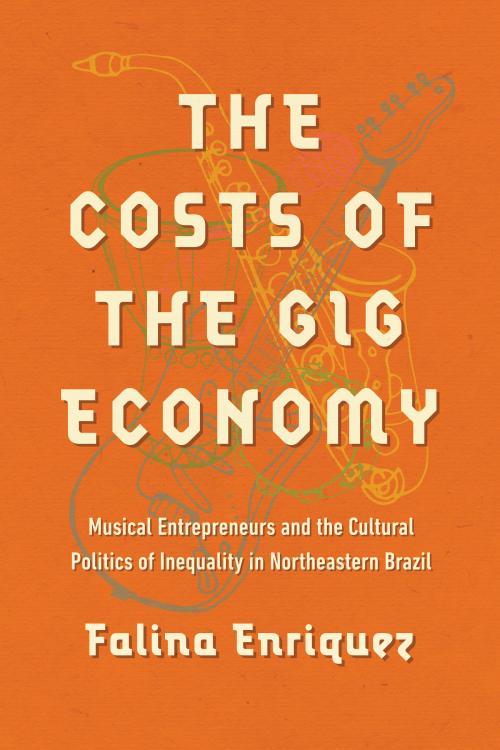
The Costs of the Gig Economy
Cloth: 09/13/2022
About the Book
Institutions in Recife, Brazil, have restructured subsidies in favor of encouraging musicians to become more entrepreneurial. Falina Enriquez explores how contemporary and traditional musicians in the fabled musical city have negotiated these intensified neoliberal cultural policies and economic uncertainties.Drawing on years of fieldwork, Enriquez shows how forcing artists to adopt “neutral” market solutions reinforces, and generates, overlapping racial and class-based inequalities. Lacking the social and financial resources of their middle-class peers, working-class musicians find it difficult to uphold institutional goals of connecting the city’s cultural roots to global markets and consumers. Enriquez also links the artists’ situation to that of cultural and creative workers around the world. As she shows, musical sponsorship in Recife and the contemporary gig economy elsewhere employ processes that, far from being neutral, uphold governmental and corporate ideologies that produce social stratification.
Rich and vibrant, The Costs of the Gig Economy offers a rare English-language portrait of the changing musical culture in Recife.
* Publication of this book was supported in part by the University of Illinois Press Fund for Anthropology and the Tinker-Nave Faculty Publication Supplement from the Latin American, Caribbean, and Iberian Studies program at the University of Wisconsin–Madison. Support for this research was provided by the University of Wisconsin–Madison Office of the Vice Chancellor for Research and Graduate Education with funding from the Wisconsin Alumni Research Foundation.










